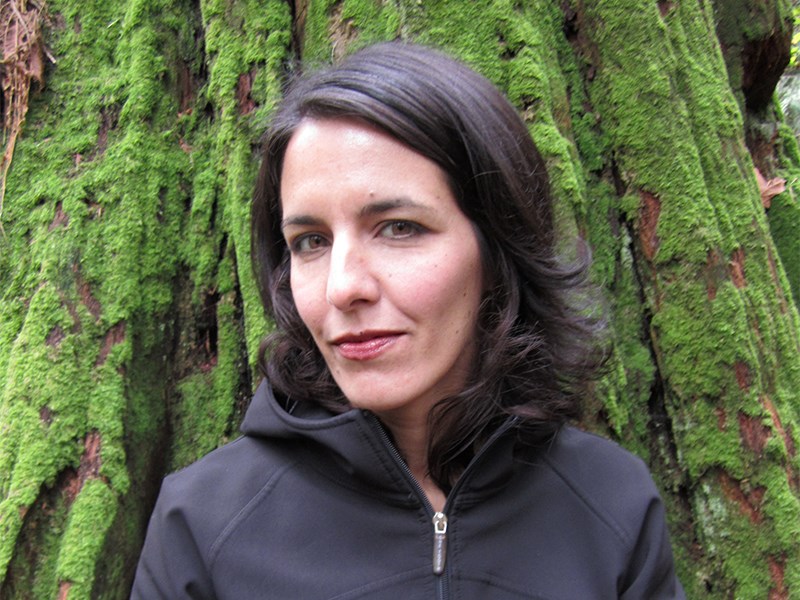Charlotte Gill is an award-winning fiction and non-fiction writer who moved to Powell River with her husband in 2011. After tree planting for 17 years, Gill decided to leave the physically demanding vocation and write a book about the experience called Eating Dirt: Deep Forests, Big Timber, and Life with the Tree-Planting Tribe. Her previous book is a collection of short stories called Ladykiller. Gill is currently working on a novel while teaching fiction and non-fiction at University of BC.
When did you first realize you wanted to be a writer?
I was a teenager, probably around 19. I read a lot and knew I really liked languages and reading, and I loved going to English class, but I didn’t really know how one would go about becoming a writer. It wasn’t until later that I thought I would try it.
What was it like writing Eating Dirt, about a topic you knew so well?
After I had done the job for about five years I totally knew I was going to write a book about it. I knew I would eventually retire from tree planting and had a book in me. It ended up being a much more environmental and scientific story than I thought at the outset, so I actually had to do a lot more research, which made it less familiar of a topic.
What are the differences between writing non-fiction and fiction?
In some ways there is not a lot of difference, because the narrative non-fiction I write has a storytelling component and is very similar to fiction. But with non-fiction, even if you are writing a memoir, you still have this total obligation to tell the truth 100 per cent of the time, because your readers know and believe you are telling the truth. If you lie to them, it’s the same as writing fake news.
What do you enjoy about mentoring other writers?
I learn just as much from them as they learn from me. They show me things I didn’t know existed before, they really think deeply about things; in some ways I just go ahead and do things that feel comfortable to me because I’ve been doing them for so long. They make me step back and reconsider.
What was the best piece of advice another writer ever gave you?
It was to, at some point during the process, just let yourself be edited with no resistance to it. The best thing to happen to a writer is to let someone else into their work and just trust them implicitly, and not fight their suggestions, because the editor is an advocate for the reader.
Is writing a form of art?
It doesn’t have an unlimited amount of wild, feral creativity, but there still is a very design-oriented, creative component to writing and I would argue that all artists spend a lot of time making things right, and editing their art.
What’s the next book about?
It’s a novel, and I can’t really say what it’s about, partially because it’s not done and partially because I don’t totally know how it’s going to end up.
For more information, go to charlottegill.com.



